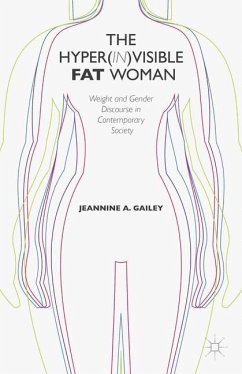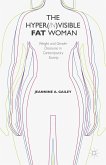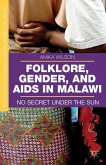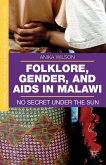In The Hyper(in)visible Fat Woman Gailey investigates the interface between fat women's perceptions of their bodies and of the social expectations and judgments placed on them. The book explores the phenomenon of 'hyper(in)visibility', the seemingly paradoxical social position of being paid exceptional attention while simultaneously being erased.
"The Hyper(in)visible Fat Woman is thought-provoking, well-written book and interesting read. ... This book would make an excellent addition to the library of anyone engaged in fat studies work or feminist or sociological research, particularly projects addressing stigma, deviance, or inequality. The book may also be used for courses focusing on fat studies, the sociology of health and wellness, social problems, or stigma." (Laura Jennings, Fat Studies, Vol. 5 (1), January, 2016)
"This book offers an important and timely intervention into the so-called obesity epidemic. In dialogue with the new fat studies scholarship yet firmly grounded in sociology, Gailey's analysis does something few other accounts do: give voice to the women who are more often talked about and around than enabled to speak for themselves. As much about the politics ofvisibility as it is about bodies and health, The Hyper(in)visible Fat Woman charts the psychological and social wreckage of fat phobia and discrimination. It is a poignant, compelling read, sure to be of wide interest." Monica J. Casper, Head of Gender and Women's Studies, University of Arizona, USA
"This book offers an important and timely intervention into the so-called obesity epidemic. In dialogue with the new fat studies scholarship yet firmly grounded in sociology, Gailey's analysis does something few other accounts do: give voice to the women who are more often talked about and around than enabled to speak for themselves. As much about the politics ofvisibility as it is about bodies and health, The Hyper(in)visible Fat Woman charts the psychological and social wreckage of fat phobia and discrimination. It is a poignant, compelling read, sure to be of wide interest." Monica J. Casper, Head of Gender and Women's Studies, University of Arizona, USA








